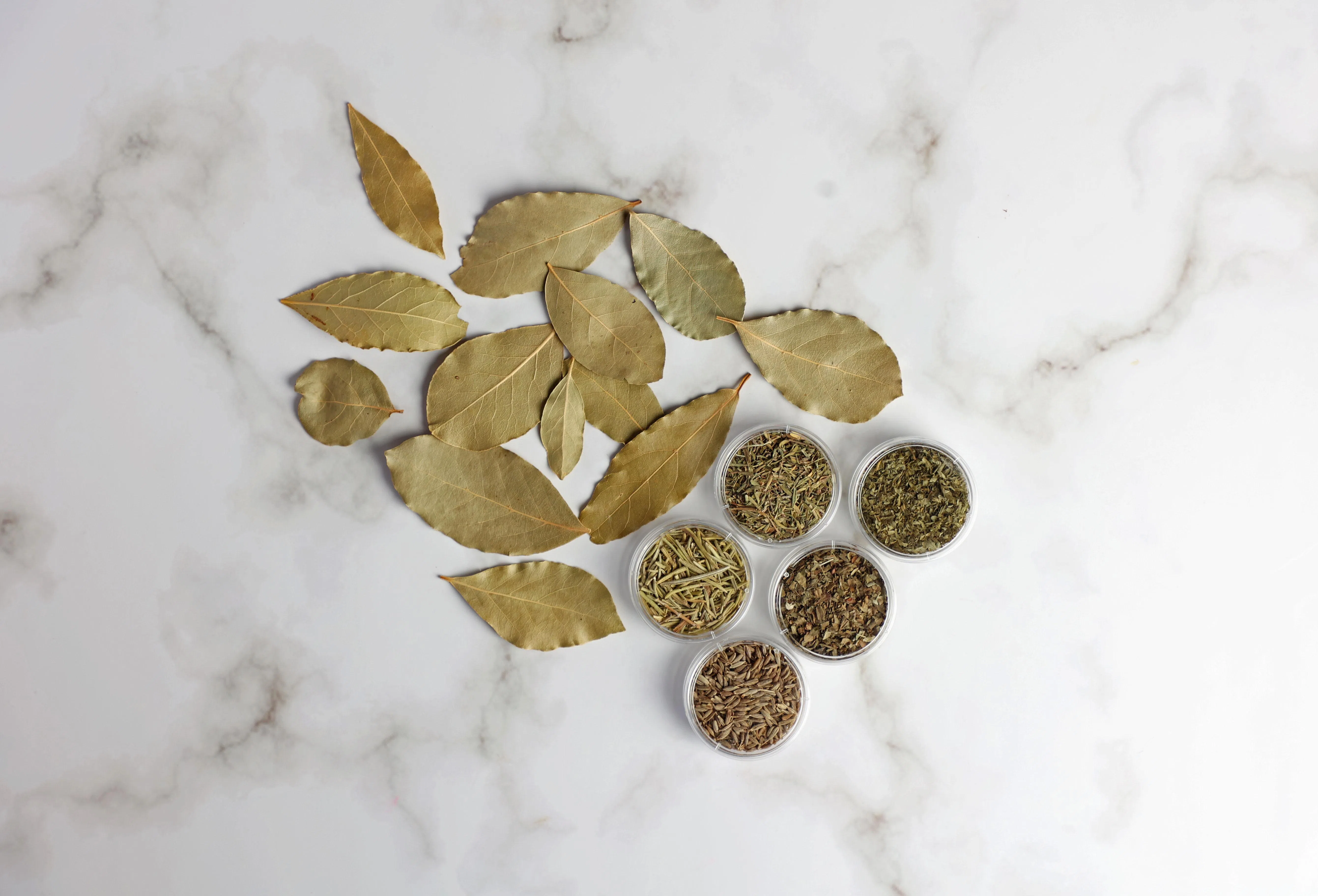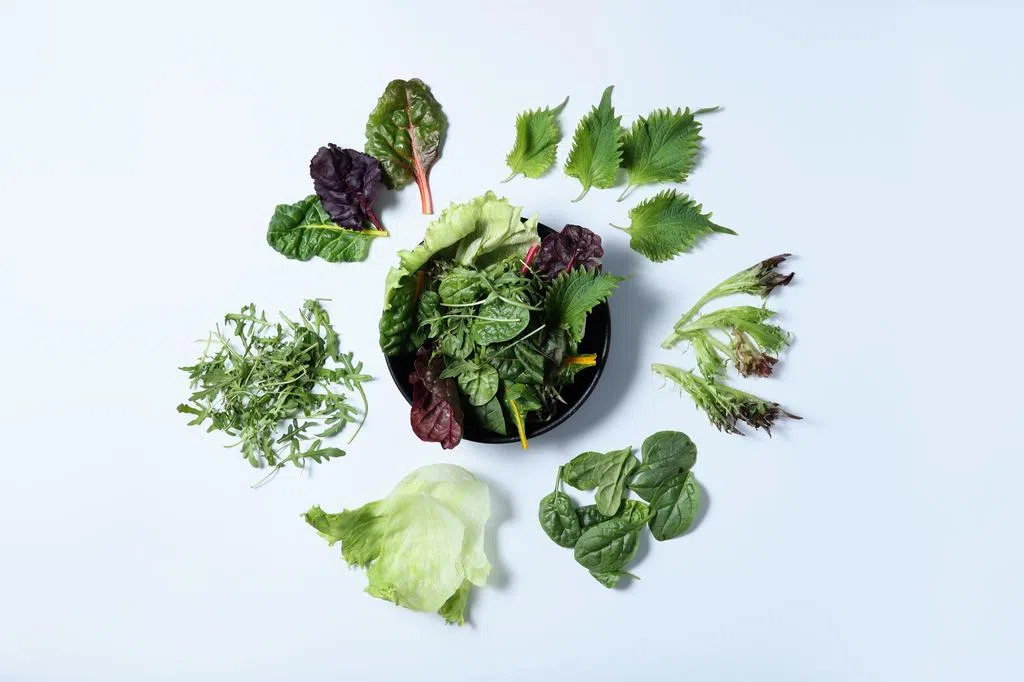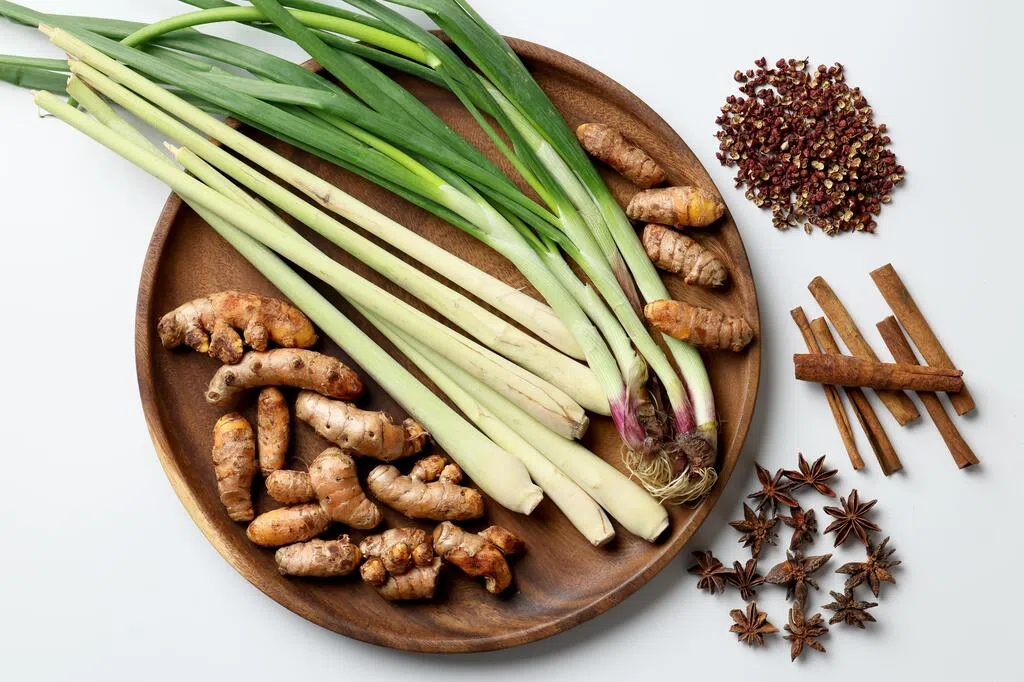Despite their small size and lack of central presence, herbs and spices play a crucial role in culinary flavor. Not only do they each possess unique aromas, they also offer antioxidant, anti-inflammatory, and cardiovascular health benefits.
Herbs typically refer to the leaves of a plant, while spices encompass other plant parts such as seeds, flowers, fruits, bark, and roots. Cleverly using herbs and spices in cooking can reduce salt and sauce usage, help lower the sodium content of dishes, and even help manage blood pressure.

Is your food bland without salt? Don't worry. Our taste receptors regenerate every 10 to 14 days, so it only takes a week or two to adjust to a lower-salt diet.
The following six herbs and spices are commonly used in Western cuisine. Dried versions are easy to store, convenient to use, and offer a richer flavor. Fresh herbs are also a good choice for brighter, fresher seasonings or garnishes.
Bay leaf
Bay leaf, with its subtle fragrance, is often used in stews. It is also used medicinally, with benefits including relieving indigestion, improving appetite, alleviating nausea, promoting blood circulation, relieving menstrual cramps, and calming the nerves.
Further reading


However, due to its pharmacological properties, it should be used with caution, especially by pregnant or breastfeeding women, or those with digestive tract problems, liver dysfunction, or gout. Consult a doctor before use.
Bay leaves can be boiled, stewed, or brewed into tea (steep in hot water for 5 to 10 minutes). Slightly tearing them before heating helps release their aroma.
Thyme
Native to the Mediterranean, thyme has small, fresh leaves and a refreshing aroma. It can be used fresh or dried. It is a common seasoning in Western soups, barbecues, and sauces. It should be added to the pot early in the cooking process to fully release its aroma.
Thyme contains thymol and volatile oils, which have antibacterial and anti-inflammatory properties. It has a long history in traditional medicine, having been used to treat respiratory ailments and prevent diseases since the time of Hippocrates. Modern research also confirms the value of thyme extract in relieving coughs and relieving acute bronchitis. However, patients taking warfarin or other anticoagulants should consult their doctor first. Thyme may interfere with vitamin K metabolism or interact with anticoagulants, increasing the risk of bleeding.
Parsley
Parsley has a mild flavor and is well-suited to many Western dishes, whether raw or cooked. It is often used to enhance the flavor and color of pasta, stews, and soups, and can also be added to salads, garnished, or chopped and sprinkled on dishes.
It is rich in nutrients, including B vitamins such as folate, trace amounts of coenzyme B12, and vitamins K, A, and C. It also contains various antioxidants, which help boost immunity and protect against free radical damage. Parsley also contains minerals such as magnesium, sulfur, iron, zinc, manganese, selenium, iodine, and calcium, which can be beneficial for those with trace mineral deficiencies.
Parsley is often considered a natural heavy metal detoxifier, particularly helpful in removing aluminum from the body. However, it has a high oxalate content, so kidney patients with oxalate metabolism issues should use it with caution.
Basil
Basil has a rich aroma with hints of mint and pepper, and is commonly used in Italian cuisine.
According to the Compendium of Materia Medica, basil has pungent and warm properties, known for its effects on dispersing blood stasis and relieving pain, promoting blood circulation, and invigorating blood circulation and qi. The eugenol in basil has a unique aroma and is believed to improve digestion and appetite. Some compounds in basil have a calming effect, helping to relieve stress and anxiety, thereby improving sleep quality. However, excessive consumption of basil is advised, as it can damage vital energy. Patients with lupus, pregnant women, and those taking blood thinners should exercise caution.
Cumin
Cumin has a rich aroma with a distinctive licorice-like, slightly sweet flavor, and is used in a wide range of cooking, medicinal, and gardening applications.
Cumin is an essential spice in kitchens around the world. It's the soul of Chinese braised dishes, deodorizing and enhancing the flavor of meat. It's also the flavor foundation of Western and Indian cuisine.
Traditional Chinese medicine believes cumin has medicinal properties, dispelling cold, relieving pain, regulating qi, and soothing the stomach. It's often used to treat abdominal pain caused by cold hernias, dysmenorrhea, and loss of appetite. Research shows that cumin is rich in antioxidants and has anti-inflammatory properties. Fennel's main component, fennel oil, stimulates gastrointestinal nerves and blood vessels, promoting digestive juice secretion and increasing gastrointestinal motility. It also helps eliminate accumulated gas, strengthening the stomach and promoting qi circulation.
Fennel seeds can be distilled to extract essential oil, used in aromatherapy and skincare products. Those with stomach heat, lung heat, or small intestinal and bladder problems, or related symptoms, should avoid cumin.
Rosemary
Early Greeks used rosemary, rich in antioxidants, to improve memory and stimulate brain function, helping to slow or prevent oxidative damage to important cellular components.
Research has shown that rosemary has multiple benefits, including boosting immune function, preventing digestive upset, and protecting the skin and hair. Other benefits include supporting liver and lung function, relieving pain, and promoting respiratory function. Rosemary can also help alleviate fatigue and drowsiness during daily work.
Due to its unique flavor, rosemary's leaves, stems, and flowers are rich in aromatic oils and are often used as a spice in cooking and in essential oils. It can also be brewed into a tea to help boost mental alertness.
Excessive intake of rosemary may cause stomach pain and indigestion. Some reports indicate that excessive rosemary intake may stimulate uterine contractions in pregnant women, so caution is advised when using it.



